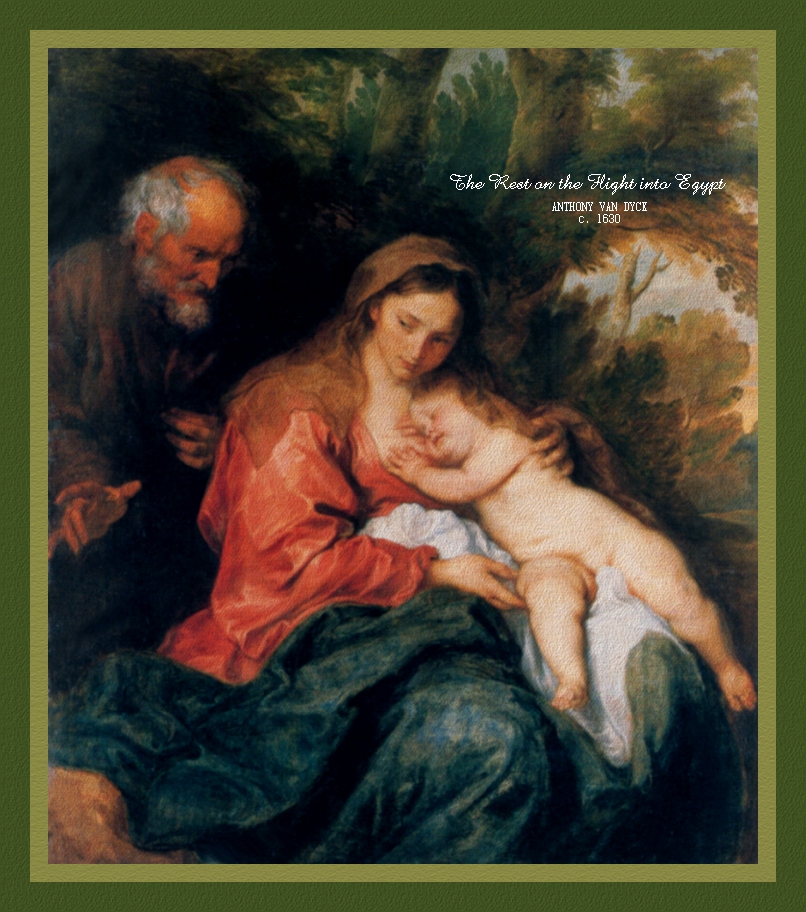

Mary's Poverty
TAKEN FROM THE GLORIES OF MARY
by Saint Alphonsus Liguori
with Nihil Obstat and Imprimatur, 1931
Our most loving Redeemer, that we might learn from him to despise the things of the world, was pleased to be poor on earth: Being rich, says St. Paul, He became poor for your sake, that through His poverty you might be rich. [2 Cor. 8:9] Therefore doth Jesus Christ exhort each one who desires to be His disciple, If thou wilt be perfect, go sell what thou hast, and give to the poor ... and come, follow Me. [Matt. 19:21]
Behold Mary, His most perfect disciple, who indeed imitated His example. Father Canisius proves that Mary could have lived in comfort on the property she inherited from her parents, but she preferred to remain poor, and reserving only a small portion for herself, distributed the rest in alms to the temple and the poor. Many authors are of opinion that Mary even made a vow of poverty; and we know that she herself said to St. Bridget, "from the beginning I vowed in my own heart that I would never possess anything on earth."
The gifts received from the holy Magi cannot certainly have been of small value; but we are assured by St. Bernard. that she distributed them to the poor through the hands of St. Joseph. That the Divine Mother immediately disposed of these gifts is also evident from the fact, that at her purification, in the temple she did not offer a lamb, which was the offering prescribed in Leviticus for those who could afford it, for a son she shall bring a lamb; [Lev. 12:6] but she offered two turtle doves, or two pigeons, which was the oblation prescribed for the poor: And to offer a sacrifice, according as it was written in the law of the Lord, a pair of turtle doves or two young pigeons. [Luke 2:24] Mary herself said to St. Bridget, "All that I could get I gave to the poor, and only reserved a little food and clothing for myself."
Out of love for poverty she did not disdain to marry St. Joseph, who was only a poor carpenter, and afterwards to maintain herself by the work of her hands, spinning or sewing, as we are assured by St. Bonaventure. The Angel, speaking of Mary, told St. Bridget that "worldly riches were of no more value in her eyes than dirt." In a word, she always lived poor, and she died poor; for at her death we do not know that she left anything but two poor gowns, to two women who had served her during her life, as it is recorded by Metaphrastes and Nicephorus.
St. Philip Neri used to say that "he who loves the things of the world will never become a Saint." We may add what St. Teresa said on the same subject, that "it justly follows that he who runs after perishable things should also himself be lost." But, on the other hand, she adds, that the virtue of poverty is a treasure which comprises in itself all other treasures. She says the "virtue of poverty;" for, as St. Bernard remarks, this virtue does not consist only in being poor, but in loving poverty. Therefore did Jesus Christ say, Blessed are the poor in spirit, for theirs is the kingdom of Heaven. [Matt. 5:3] They are blessed because they desire nothing but God, and in God they find every good; in poverty they find their paradise on earth, as St. Francis did when he exclaimed, "My God and my all."
Let us, then, as St. Augustine exhorts us, "love that one good in which all good things are found" and address our Lord in the words of St. Ignatius, "Give me only Thy love, with Thy grace, and I am rich enough." "When we have to suffer from poverty, let us console ourselves," says St. Bonaventure, "with the thought that Jesus and His Mother were also poor like ourselves."
Ah, my most holy Mother, thou hadst indeed reason :to say that in God was thy joy: and my spirit hath rejoiced in God my Saviour; for in this world thou didst desire and love no other good but God. Draw me after thee. O Lady, detach me from the world, that I may love Him alone, Who alone deserves to be loved. Amen.
 E-MAIL
E-MAIL
HOME------------------MARY'S INDEX
www.catholictradition.org/Mary/poverty-mary.htm